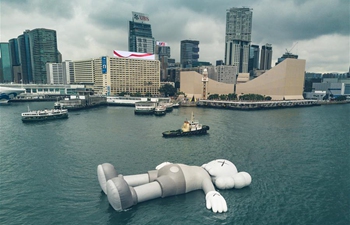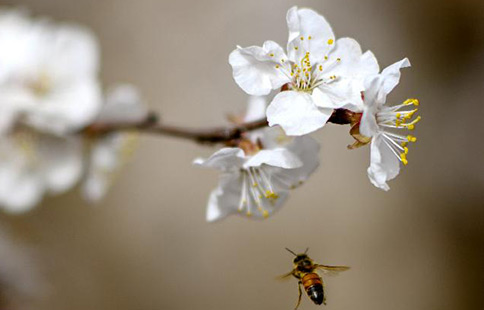WASHINGTON, March 24 (Xinhua) -- A study showed that exposure to tiny air pollution particles may reduce sperm production.
The findings released on Sunday and to be presented on Monday on the ongoing Endocrine Society's annual meeting in New Orleans showed that the exposure to particulate matter with diameters that are 2.5 micrometers or smaller (PM2.5) could lead to changes in the levels of genes related to testicular cell function in mice.
"Infertility rates are increasing around the world, and air pollution may be one of the main factors," said the study's lead researcher Elaine Maria Frade Costa with Sao Paulo University.
The researchers analyzed the testes of the mice and their production of sperm. They found that the tubes in the testes producing sperm of all the exposed mice showed signs of deterioration.
In comparison with the mice not exposed to PM2.5, the sperm of those exposed before and after birth was of significantly worse quality. Exposure to PM2.5 after birth seemed to be the most harmful to testicular function, according to the study.
The researchers said those changes are not caused by changes in the DNA sequence but by epigenetic changes. The epigenetic changes can switch genes on or off and determine which proteins a gene expresses.
The study demonstrates for the first time that exposure to air pollution of a large city could impair production of sperm through epigenetics.

















